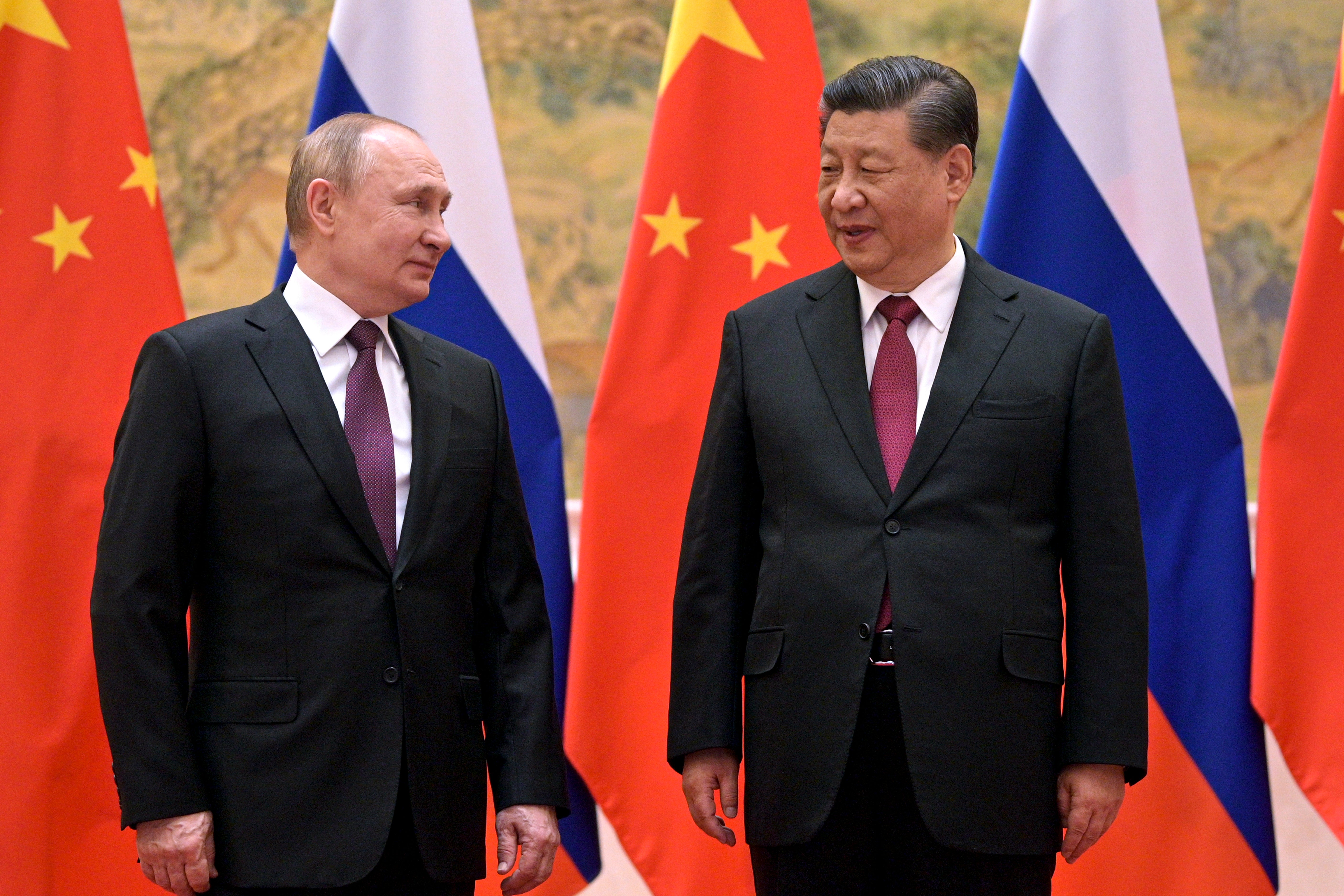As Ukraine crisis edges towards war, China walks a fine line between Russia and the west
Beijing has backed Russia but is wary of relations with the US and EU being damaged by the crisis, reports Ahmed Aboudouh


As the Ukraine crisis worsens, attention turns to how the world’s biggest powers react. For one country, China, the issue presents a major dilemma.
Beijing initially showed its solidarity with Moscow during President Vladimir Putin’s recent visit to the Winter Olympic Games. In a sweeping joint statement, the two sides took a swipe at the US-led world order and displayed deep grievances at Nato, while ignoring any mention of Ukraine.
But as the prospect of a possible war in Ukraine has increased – especially with Mr Putin’s explosive recognition of the two breakaway Russia-backed regions of Donetsk and Luhansk – Beijing has begun to show more caution, maintaining its verbal support for Moscow, while at the same time calling for dialogue and diplomacy as a means of de-escalation. It has also recognised Ukraine’s sovereignty.
“Although Russia and China in the long term might have competing interests, in the short term China wants Moscow on its side as it seeks to erode the liberal international order,” said Zeno Leoni, lecturer in war studies and affiliate with the Lau China Institute at King’s College London.
On Monday, China’s UN representative Zhang Jun urged “all parties” to show restraint and avoid “fuelling tensions” in Ukraine.
During the Munich Security Conference last week, China’s foreign minister Wang Yi said the Minsk agreements – the 2014 and 2015 protocols signed after fighting with separatists in east Ukraine – were the “the only way out for the Ukrainian issue”.
However, he also thought to make China’s position clear in support of “the sovereignty, independence, and territorial integrity of any country”, stressing that “Ukraine is no exception”.
And yet on Tuesday, Mr Wang refrained from condemning Mr Putin’s recognition of the two breakaway regions, during a phone conversation with the US secretary of state Antony Blinken, calling for respecting “every country’s security concern”, according to a statement by the Chinese foreign ministry.
The Ukraine crisis has exposed a massive fragility with China’s foreign policy. This structural weakness stems from China’s eagerness to balance its deteriorating tensions with the US with closer ties with Russia. But the last thing China wants is the new close partnership with Russia to compromise its already deep economic relations with Ukraine and the EU.
Experts say Beijing laments the Ukraine crisis because it does not want to be wedded to Russia’s tug-of-war game with the US by appearing as an enforcer of Moscow’s push for new security arrangements in Europe.
Top Chinese leadership figures were reportedly deliberating behind closed doors over the best way to handle this delicate impasse China, intentionally or unintentionally, has found itself in, as the country still tries to shield its relations with the US from further damage.
China does not want to be forced to take sides or be part of an equilibrium where the US and the EU stand on one side against a coalition of Russia and China.

Mr Putin’s recognition of the eastern Ukraine regions as independent entities also contradicts China’s constantly touted opposition of annexation of territories or separatism anywhere.
China is also concerned about the potential spillover of economic sanctions on Russia threatened by the US and the EU, as it relies heavily on economic statecraft and connectivity with the west to bolster its position on the world stage.
“If tensions were to escalate on that side of Europe, this is certainly something that will affect China’s economic interests, perhaps even more than in eastern Europe where China has little tangible interests yet,” Mr Leoni said.
In the case of a Russian invasion of Ukraine, China might find it inevitable to extend an economic lifeline to Russia to mitigate the impact on the Russian economy. But this might damage relations with the EU and give Washington a chance to drive a wedge between both sides, as well as cement its allies’ coalitions against China.
There, experts suggest, it is difficult to imagine, contrary to many experts’ views, that China has granted Russia the green light for a military thrust into Ukraine.






Join our commenting forum
Join thought-provoking conversations, follow other Independent readers and see their replies
Comments